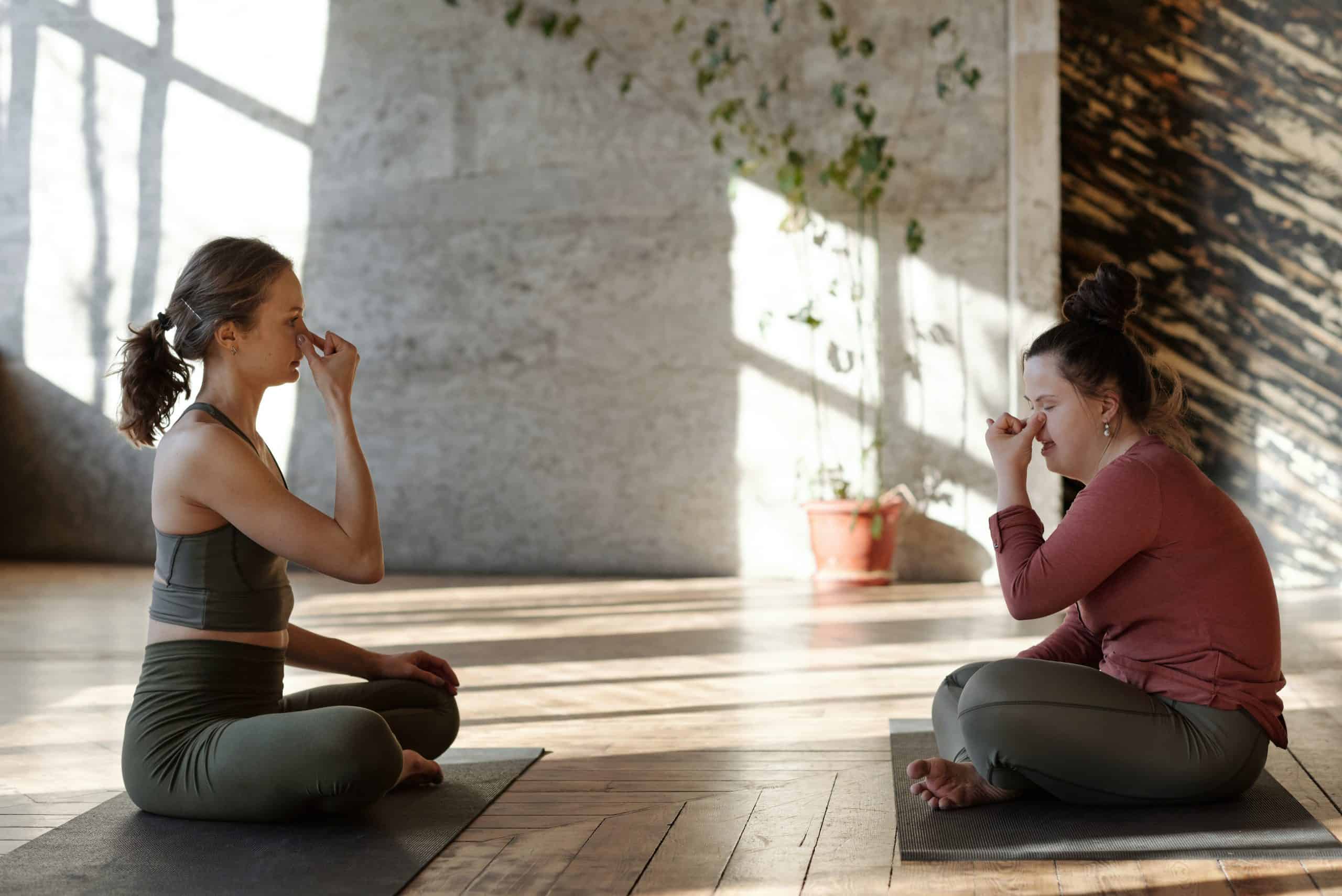using the breath to control chronic pain

how breath mindfulness assists relieving lower back chronic pain health
As a yoga practitioner, I find the aspects of yoga very enlightening, empowering and inspiring.
To me, yoga can touch all parts of my life and, I feel, help to heal me mentally, physically and spiritually.
As I read more about yoga’s effect on others, I start to focus in on the aspects that intrigue me the most.
Discovering Mindfulness
As soon as I chose the subject of mindfulness as my latest target, surprise, surprise, mindfulness jumps out at me from everywhere.
My husband, who is a Registered Massage Therapist, brought one of the most amazing effects up to me.
He deals with people who have chronic pain on a regular basis and is always open to anything that may assist in helping patients heal themselves.
Shifting Away from Medications
The reliance on medications to alleviate chronic pain is something that many RHPS’ and patients themselves are moving away from.
Many times the pain is only masked and recurs when the patient stops taking them.
Even worse can be that people start to need higher doses and stronger medications and may eventually become addicted.
The Role of Mindfulness in Pain Management
The notion of mindfulness is a form of meditation that focuses on training people to use breathing as a focus to block out other sensations in the body.
They bring their awareness to the present moment and try to feel the physical sensation of the breath.
It is a specific section of practice that comes from Buddhist meditation techniques.
Clinical Evidence Supporting Mindfulness
If outside thoughts break through into the meditation, then, without judgment, acknowledge them and return to their focus on the breath.
This training has been studied at the University level in the United States many years ago, where a program was developed called Mindful-Based Stress Reduction.
Until recently there were not many high quality studies using this program, but a clinical trial that used over 300 subjects who had lower back pain has been concluded in March of 2016.
Results of the Mindful-Based Stress Reduction Program
In this trial the subjects were trained in Mindful-Based Stress Reduction program for eight weeks.
At the end of the training, it was shown that those who did the training were 37% more likely to see significant improvements in their pain issues and 64% more likely to have less “bothersomeness” in their pain.
This was when they were compared to those who had just their regular care.
Research on How Mindfulness Affects the Brain
A researcher at Wake Forest School of Medicine devised a study to figure out how mindfulness affects the brain.
They took 78 healthy adults and subjected them to heat pain.
These volunteers had 4 days of mindfulness training and had a control group that listened to a recording of a history book in place of the training.
Mindfulness and Pain Perception
Those who had trained in mindfulness had much less feelings of pain and the intensity of the unpleasantness was also much lower.
Compared to baseline measurements taken before training, pain intensity was down 21 percent and unpleasantness down 36 percent.
Comparatively the control group was up 21 percent and 18 percent respectively.
Exploring the Mechanism of Mindfulness
To answer this, they took the research up a notch.
The volunteers were either injected with a saline solution used as a control group, or a drug that blocks the effect of opioid drugs and similar naturally occurring pain blockers that the body produces.
Naturally occurring opioid dampens pain signals.
This study shows that opioid drugs are not needed because both groups experienced the same amount of relief.
Conclusion: Mindfulness as a Tool for Chronic Pain Management
It seems that meditation, though not everyone’s cup of tea, may be a quick way to teach people how to control the effects of chronic pain in order for other forms of treatment to take effect.
My husband tries to educate everyone he treats in order to have them actively involved in their plan to get healthy.
When they understand what is happening, they are more in tune with their bodies and the effects of treatment are increased.
I apply it to myself in my personal practice of yoga and in my teaching. It looks like mindfulness can be another positive tool in the toolbox!



